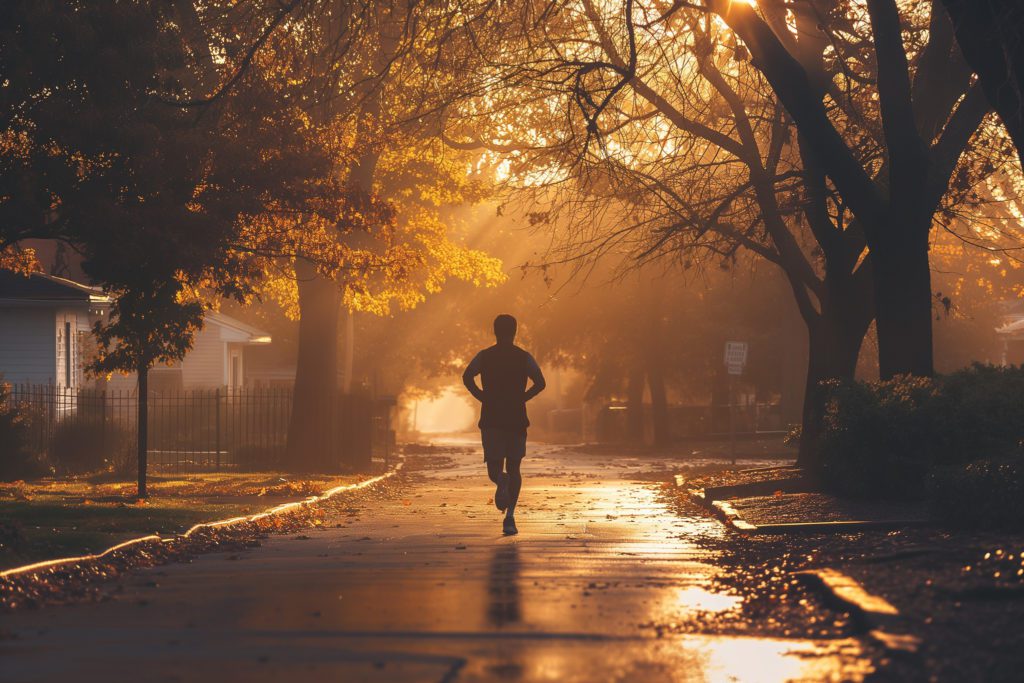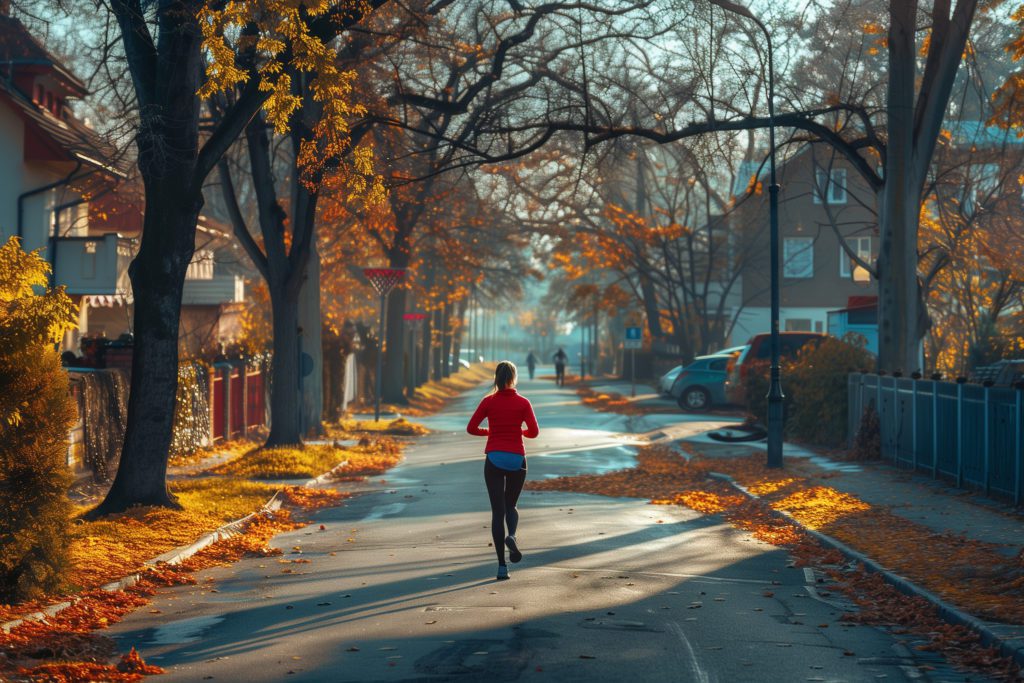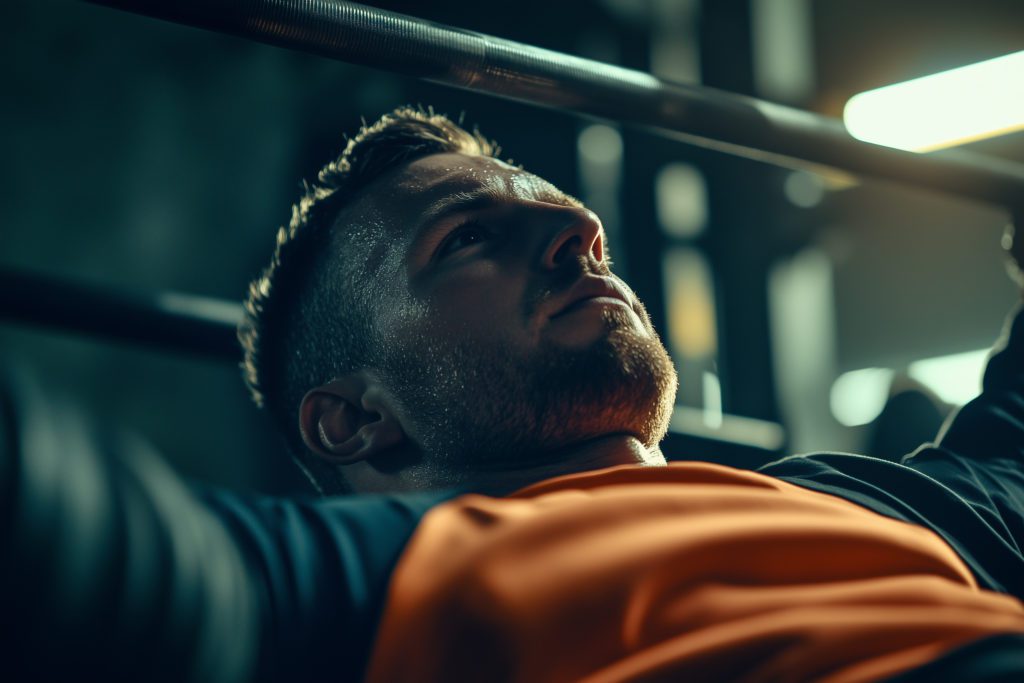
The Best Time to Exercise for Optimal Sleep
Maximize your sleep health by exercising at the optimal time. Find out how morning or evening workouts can enhance your sleep

If you’re into keeping physically fit, first of all, we salute you! Evidence has shown that exercise is hugely beneficial to not only general health and longevity, but also getting a good night’s sleep.
One study found that adults who exercised for 30 minutes per day slept an average of 15 minutes more per night than those who didn’t. That’s 3.5 extra hours’ sleep per week the active folks are getting—definitely worthwhile!
Now, the last thing we wish to do is discourage you from working out, but have you ever wondered about the best time to exercise to boost your sleep quality? Because while those late-night gym or swim sessions may be the only way you can shoehorn in workouts to your busy schedule, if they’re having a detrimental effect on the shut-eye you’re getting each night, it may be worth tweaking your timetable
In this article, we’ll look at how carefully timing your workouts can enhance your nightly rest, and ensure you feel energized come morning and throughout the day. Join us as we explore the symbiotic relationship between sleep and exercise, guiding you to a more restful and rejuvenating sleep.
Quick facts
- 79% of Americans say they exercise
- 50% of those exercise in the morning
- 26% exercise in the evening
- 19% exercise in the afternoon
Understanding Sleep Cycles
Our bodies operate on a circadian rhythm, an internal clock that tells us when we should be asleep and when we should be awake. Our circadian rhythm also determines our overall energy levels throughout the day.
Understanding your circadian cycle is crucial for optimizing your daily exercise routine so that it benefits—rather than hinders—your sleep. Why? Because exercise has a significant impact on our sleep and wake schedule.
In the same way that exposure to natural light can ensure our circadian rhythm keeps operating smoothly, introducing physical activity into our daily routine during the wide-awake period also works in tandem with a well-functioning internal clock.
Morning Exercise
Exercising in the morning has numerous benefits for the sleep cycle. A 2014 study found that adults got better sleep on the days they exercised at 7 a.m., taking less time to fall asleep and spending more time in deep sleep.
Another benefit of exercising early in the day is that, if you’re outdoors while working out—for example, during jogging, playing football, hiking, or cycling, you’re exposing yourself to natural sunlight.
Studies have found that experiencing high intensities of natural daylight outside buildings can promote sleep by making us naturally fall asleep earlier. A 2003 study found that each hour spent outdoors advanced sleep by 30 minutes. While the main reason for this was light exposure, other studies have suggested the exercise also plays a role.
The takeaway from this? If you want to sleep well, get outside and do some exercise first thing in the morning! Even if it's just a brisk walk in your neighborhood before you start work, giving your body that movement (and light) is a fantastic start to the day.
Afternoon/Evening Exercise
The fact is, a lot of the Western world is committed to work schedules that follow the 9-5 tradition. Even though working from home has made our professional schedules considerably more flexible, many of us are still forced to adhere to the old timetable—especially if we have familial duties in the evenings.
This results in often the only slot left available for working out is the evening, with just over a quarter of Americans using this part of the day.
Unfortunately, exercising later has the potential to negatively affect our natural sleep cycle. For example, it can impact our secretion of melatonin, the hormone that regulates sleep-wake cycles. Melatonin release usually begins when it gets dark. Healthy sleepers will produce the highest level of melatonin (and therefore be in their deepest sleep) between 2 a.m. and 3 a.m.
A 2021 study measured melatonin level in participants doing two hours of moderate exercise in the morning, compared to those doing the same exercise in the afternoon. The morning exercisers saw no change in their melatonin peak, while those who exercised in the afternoon saw their melatonin peak delayed by one hour.
Solutions
- Avoid high-intensity exercise: If you are left with no choice but to exercise late in the day, don’t use this article as an excuse not to work out! Instead, opt for low-intensity activities such as light cardio, yoga, and Pilates
- Melatonin supplements: Aids sleep promotion for athletes who cannot avoid exercising at night. This can help reset their circadian clock for a more natural sleep cycle, even with intense training sessions.
A Personalized Exercise Routine: Night Owls vs Early Birds
Despite the general advice about exercising earlier in the day, the jury’s still out on whether this applies to everyone. The key is to determine whether you’re a lark (a “morning person”, who feels more awake in the morning), or an owl (a “night person”, who feels more awake in the evening). Which are you?
Interestingly, research into collegiate soccer players found that despite evening or late-night exercise affecting larks, when it came to the owls, they experienced no negative effects. This means that, if you’re a night owl type, you’ll probably be fine even if you lift those weights or run that 5K late in the day.
The takeaway is that individual preferences and lifestyles can greatly affect our responses to exercise. Perhaps you find morning workouts invigorating and conducive to great sleep, or maybe you feel floppy and lethargic at this time in the morning.
The best thing to do? Take the scientific information in this article into account, but experiment and observe the effects exercise is having on your night-time rest, and find out what works for you.
By tuning into your body's responses, you can unlock the secret to a rejuvenating night's sleep through well-timed physical activity.
FAQ
How long before bedtime should I finish exercising to avoid sleep disturbances?
High-intensity workouts should generally be completed at least 2-3 hours before bedtime to allow body temperature and heart rate to return to normal. However, low-intensity activities like stretching or yoga can be done closer to bedtime and may even promote relaxation.
Can exercising too late at night delay melatonin production?
Does the body adapt to late-night workouts over time?
Some individuals can train their bodies to tolerate late-night exercise without affecting sleep, but this varies. While the body may adjust, exercising too close to bedtime can still impact deep sleep cycles, so it’s best to track personal responses and adjust accordingly.
Is working out in the middle of the day good for my sleep?
Yes, midday exercise can improve sleep by regulating your circadian rhythm, reducing stress, and boosting mood. It also allows enough time for your body to cool down before bedtime, preventing sleep disruptions. If morning workouts feel too early and evening workouts affect sleep, midday may be an ideal option!
Does the intensity of exercise play a role in how it affects sleep?
Yes, moderate-intensity exercise is generally beneficial for sleep. However, high-intensity workouts close to bedtime can increase cortisol levels and body temperature, making it harder to fall asleep. Timing and intensity should be adjusted based on individual responses.
Does the timing of exercise affect deep sleep and REM sleep differently?
Studies suggest that exercising in the morning or afternoon is associated with increased deep sleep, which is essential for physical recovery. Evening exercise may lead to more REM sleep, which is crucial for mental recovery, but high-intensity workouts too close to bedtime can disrupt both sleep stages.
How does exercise timing affect individuals with sleep disorders like insomnia or sleep apnea?
Exercise can benefit those with insomnia by reducing sleep onset time and increasing sleep duration. For sleep apnea, weight loss through exercise can alleviate symptoms. However, late-night workouts may stimulate the nervous system, worsening sleep issues for some individuals.

Written by
Georgia Austin
Professionally trained copywriter, editor, and content marketing strategist with over 7 years of experience—working with brands like Nike, Siemens, Toshiba, Tommy Hilfiger, Culture Trip, and Klook.
Download Pillow
Get help
Press & News
Legal
Connect
X (Twitter)
Company
Copyright © Neybox Digital Ltd.



